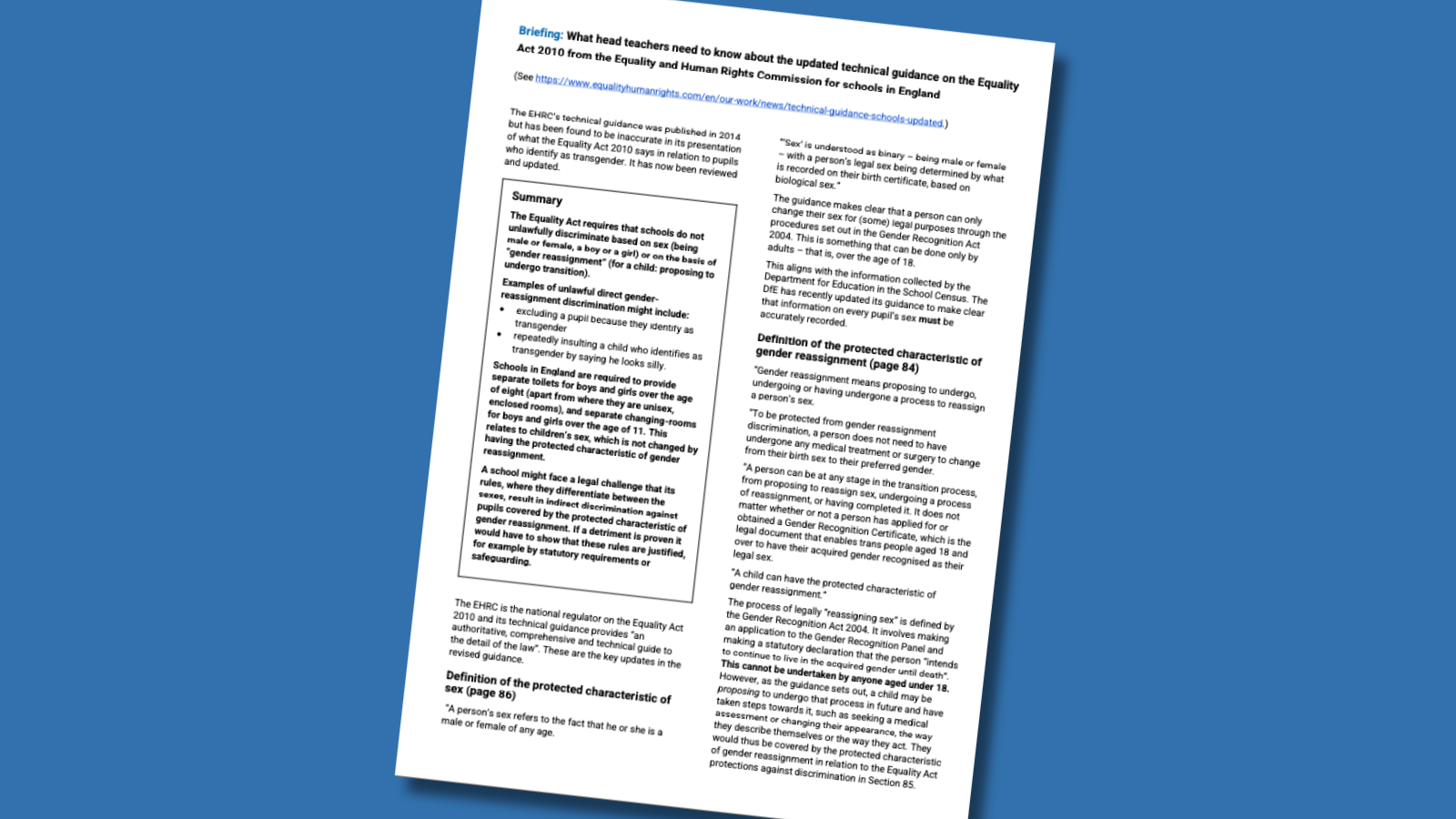Guidance
Here are all the Sex Matters publications and resource pages that give advice or guidance.
Use the Resources menu to see these filtered by users – employers, employees, MPs, parents, service providers and teachers.
For other types of publications, see our Reports – which include research, analysis, policy recommendations, and surveys done by Sex Matters – and Submissions, which include our letters and consultation responses.
You’ll also find advice and analysis from a range of experts in our webinars.
-
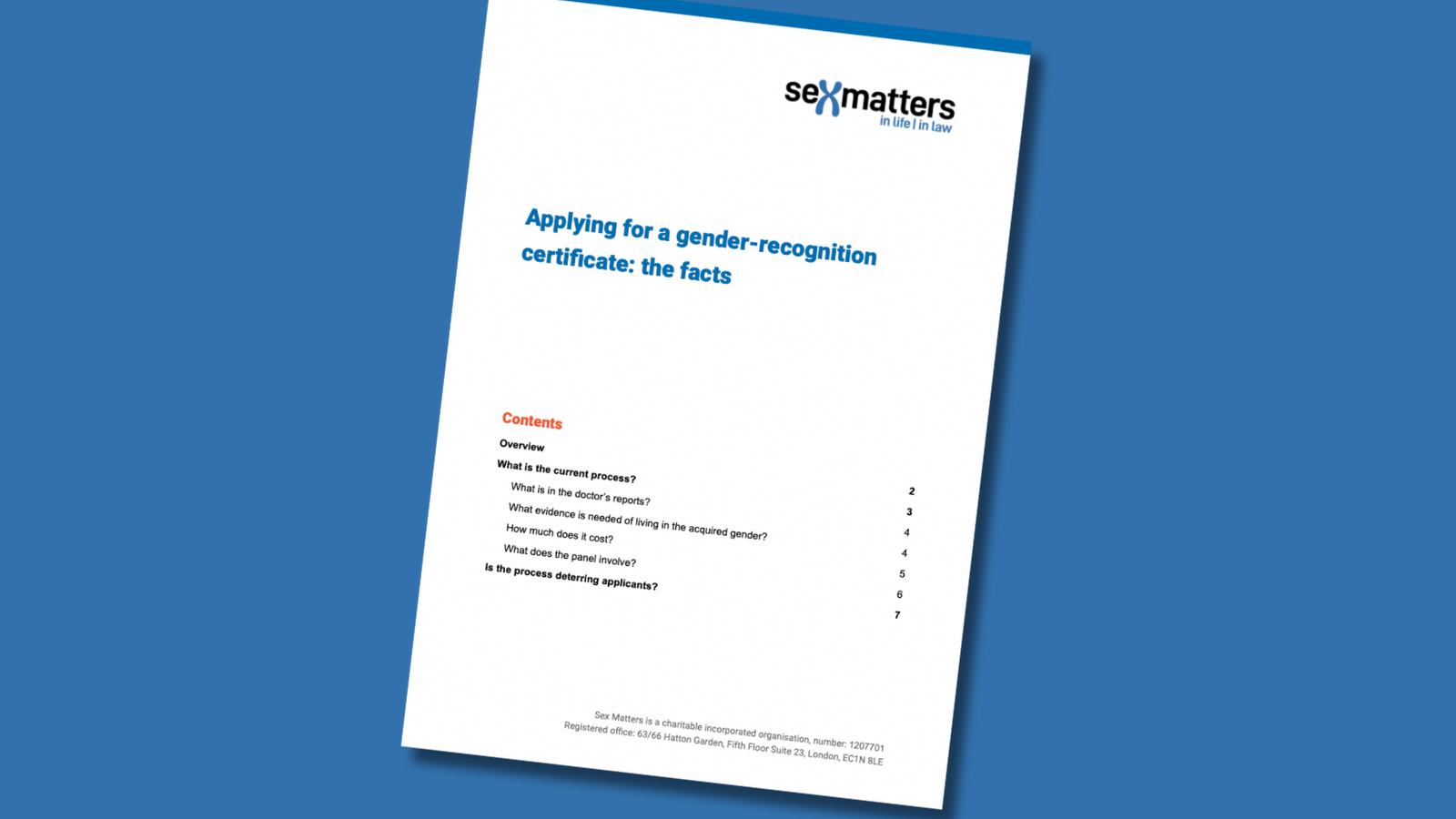
Applying for a gender-recognition certificate: the facts
Is the process “intrusive, outdated and humiliating”? We examine the evidence.
-
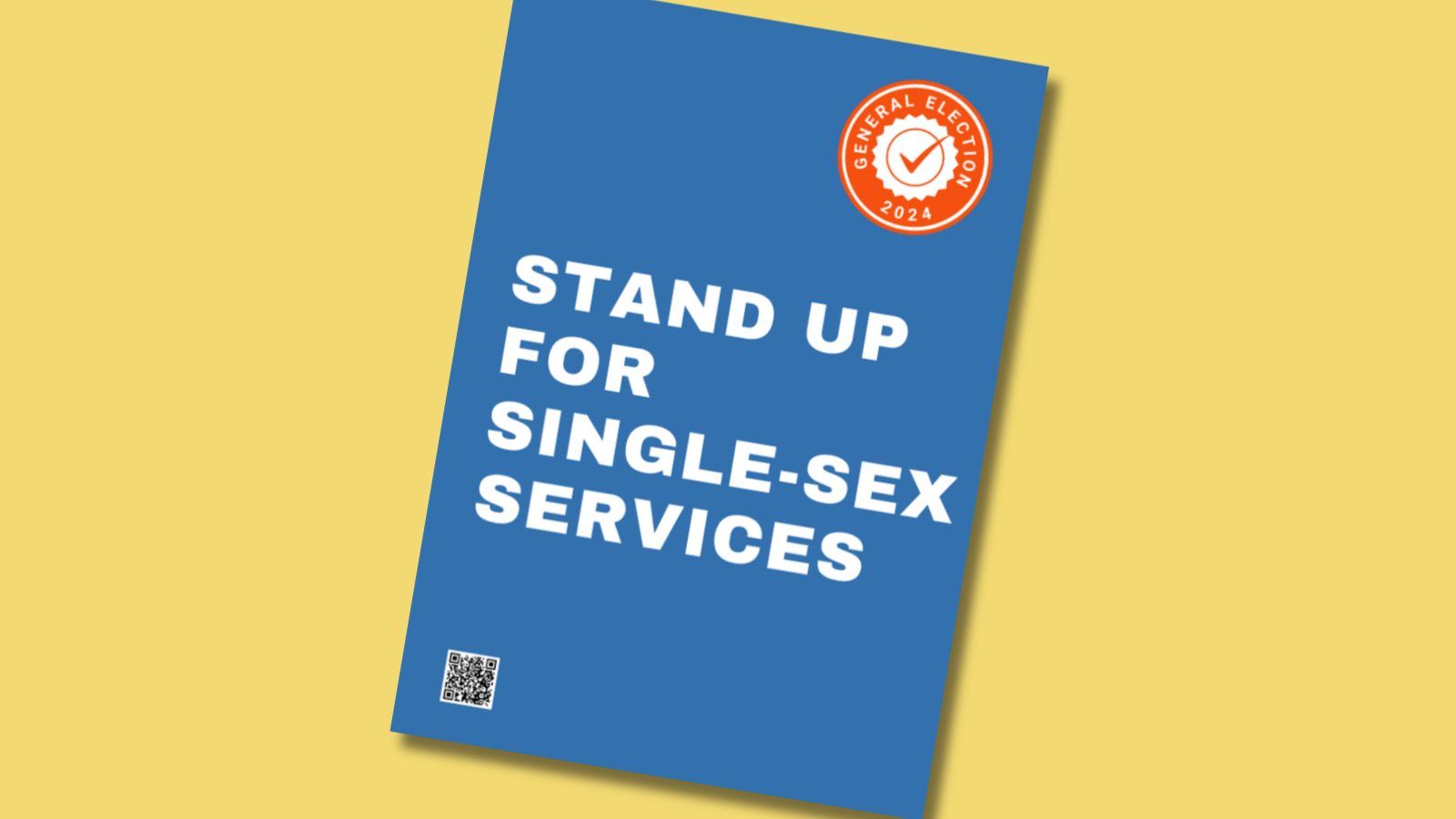
Action guide
We want to make sure that every candidate seeking to be an MP hears that people want them to STAND UP FOR SINGLE-SEX SERVICES. Every voice counts – our campaign action guide has a poster to print out, ideas for what to say to canvassers who come to your...
-
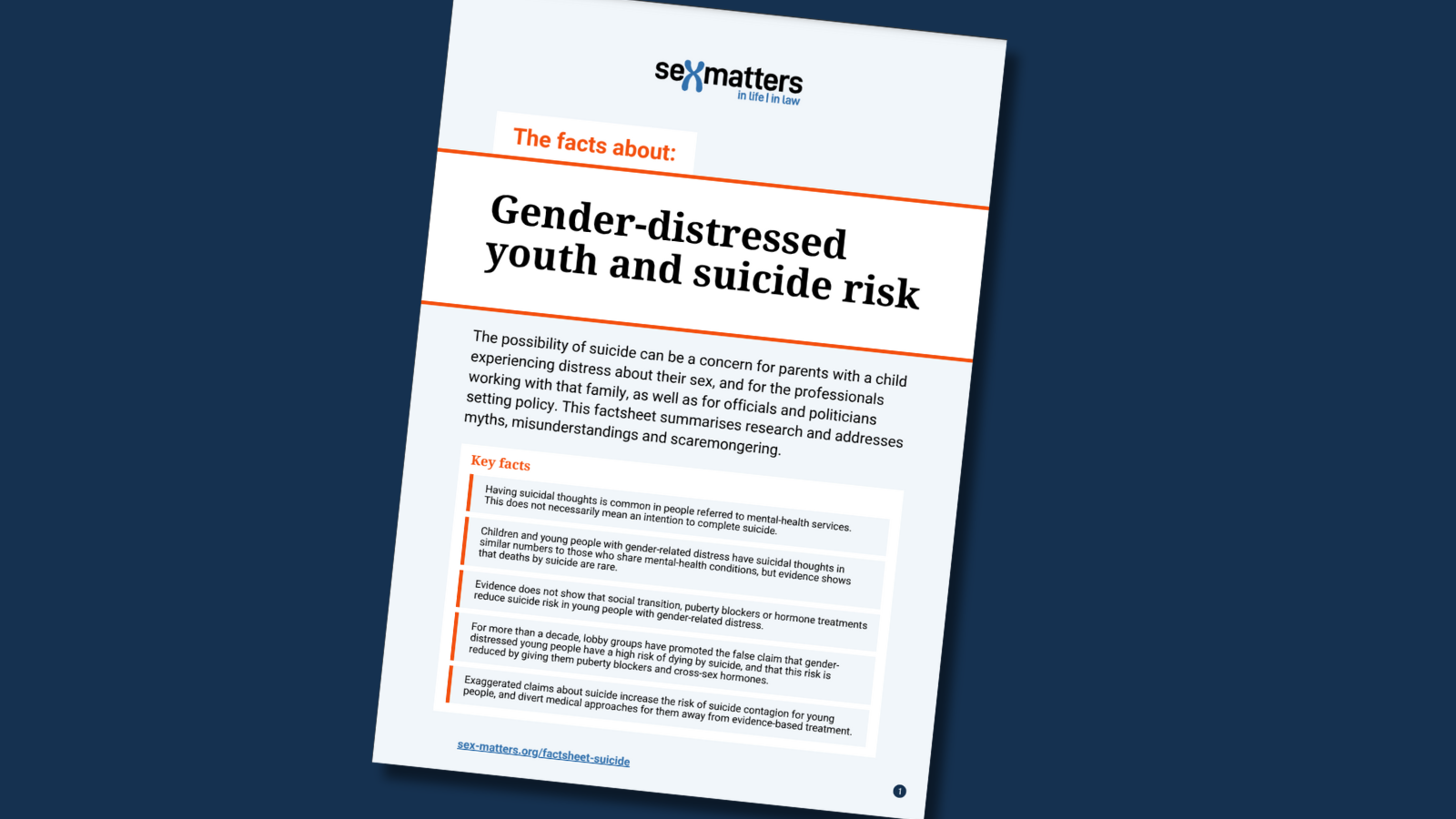
Gender-distressed youth and suicide risk – factsheet
The possibility of suicide can be a concern for parents with a child experiencing distress about their sex, and for the professionals working with that family, as well as for officials and politicians setting policy. This factsheet summarises research and addresses myths, misunderstandings and scaremongering.
-
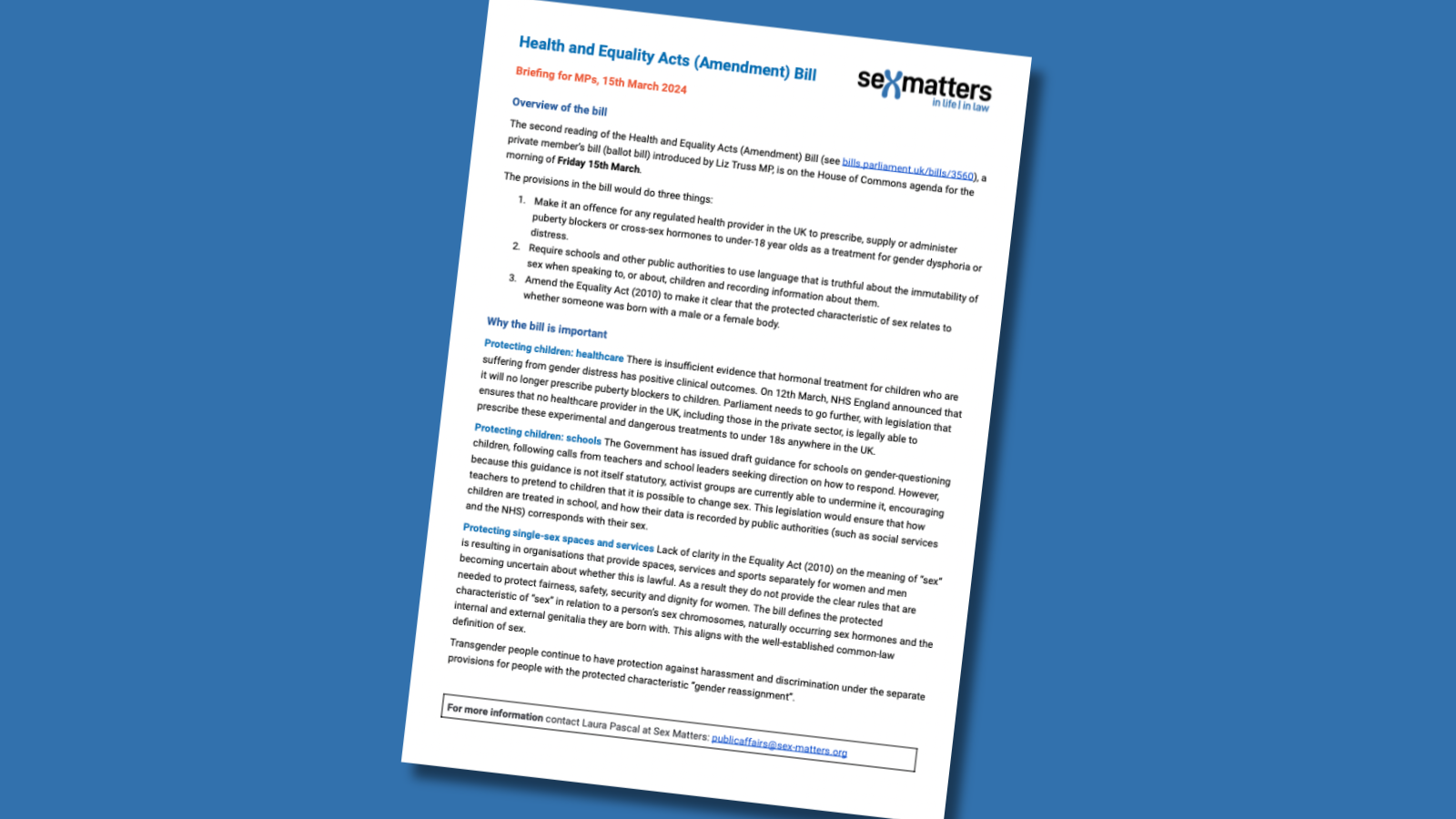
Health and Equality Acts (Amendment) Bill – briefing
This private member’s bill‘s second reading is on the House of Commons agenda for the morning of Friday 15th March 2024. This single-page briefing explains why it’s important.
-
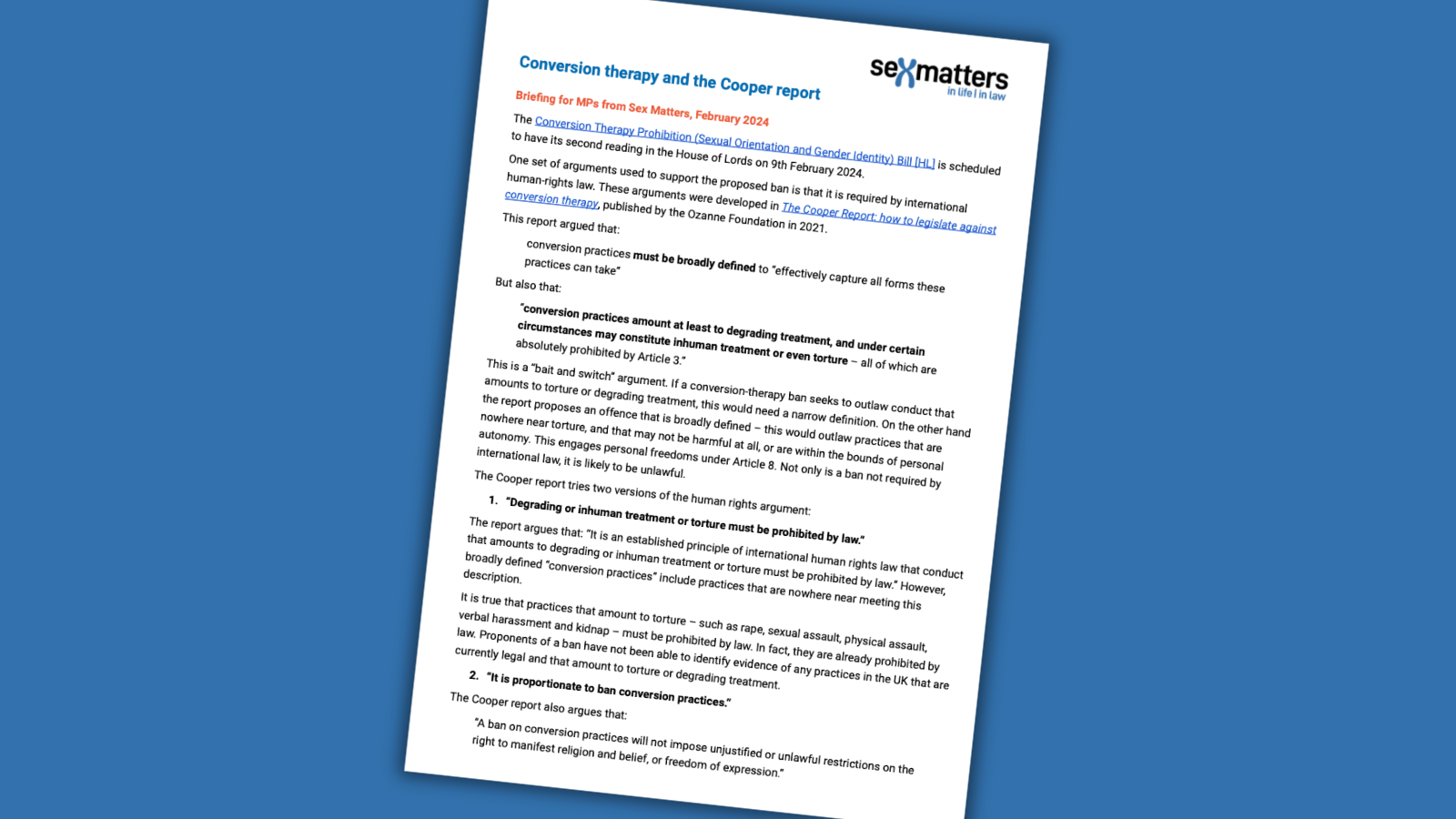
Conversion therapy and the Cooper report – parliamentary briefing
See also our more detailed parliamentary briefing on conversion therapy.
-
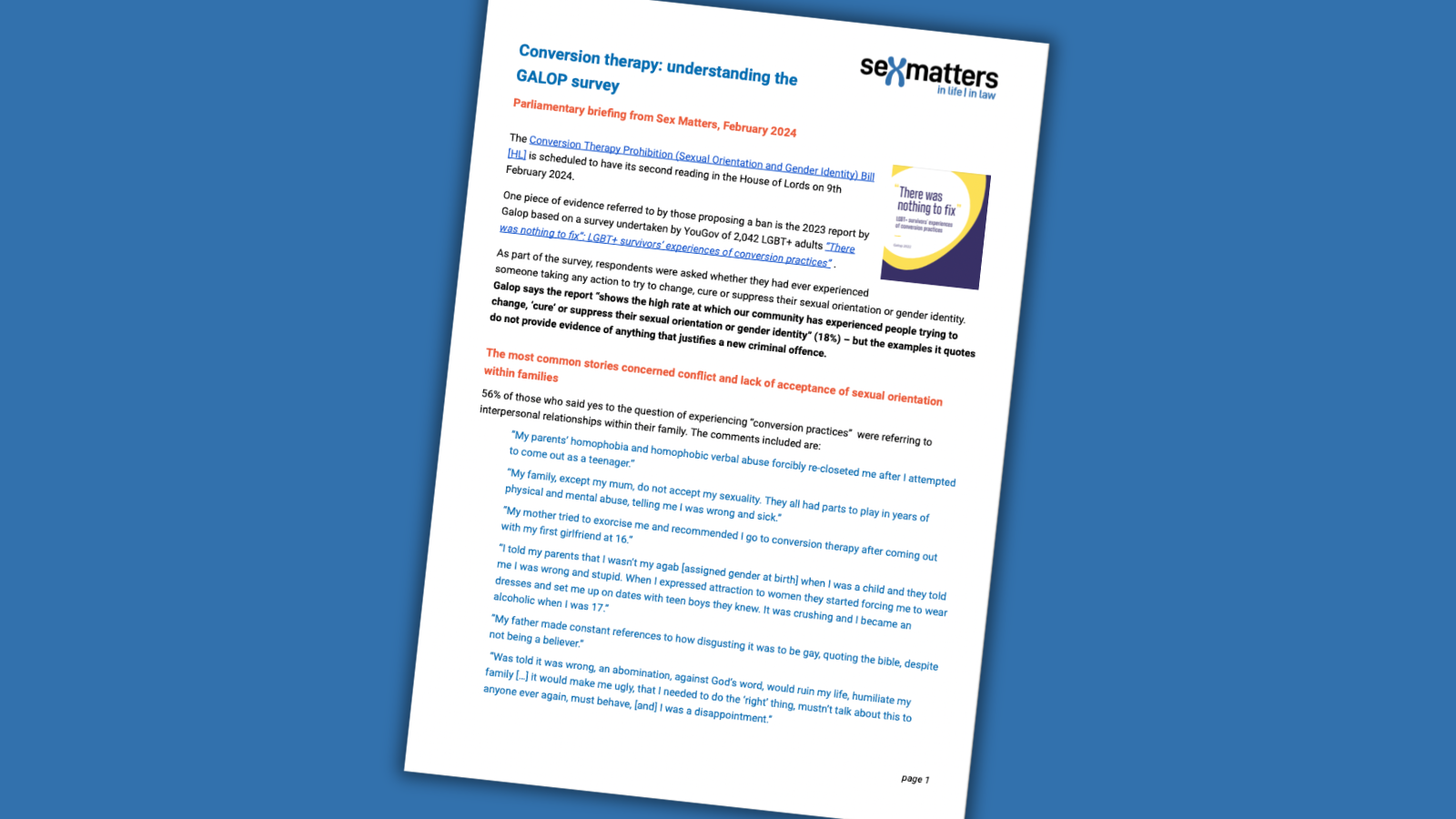
Conversion therapy: understanding the GALOP survey – parliamentary briefing
See also our more detailed parliamentary briefing on conversion therapy.
-
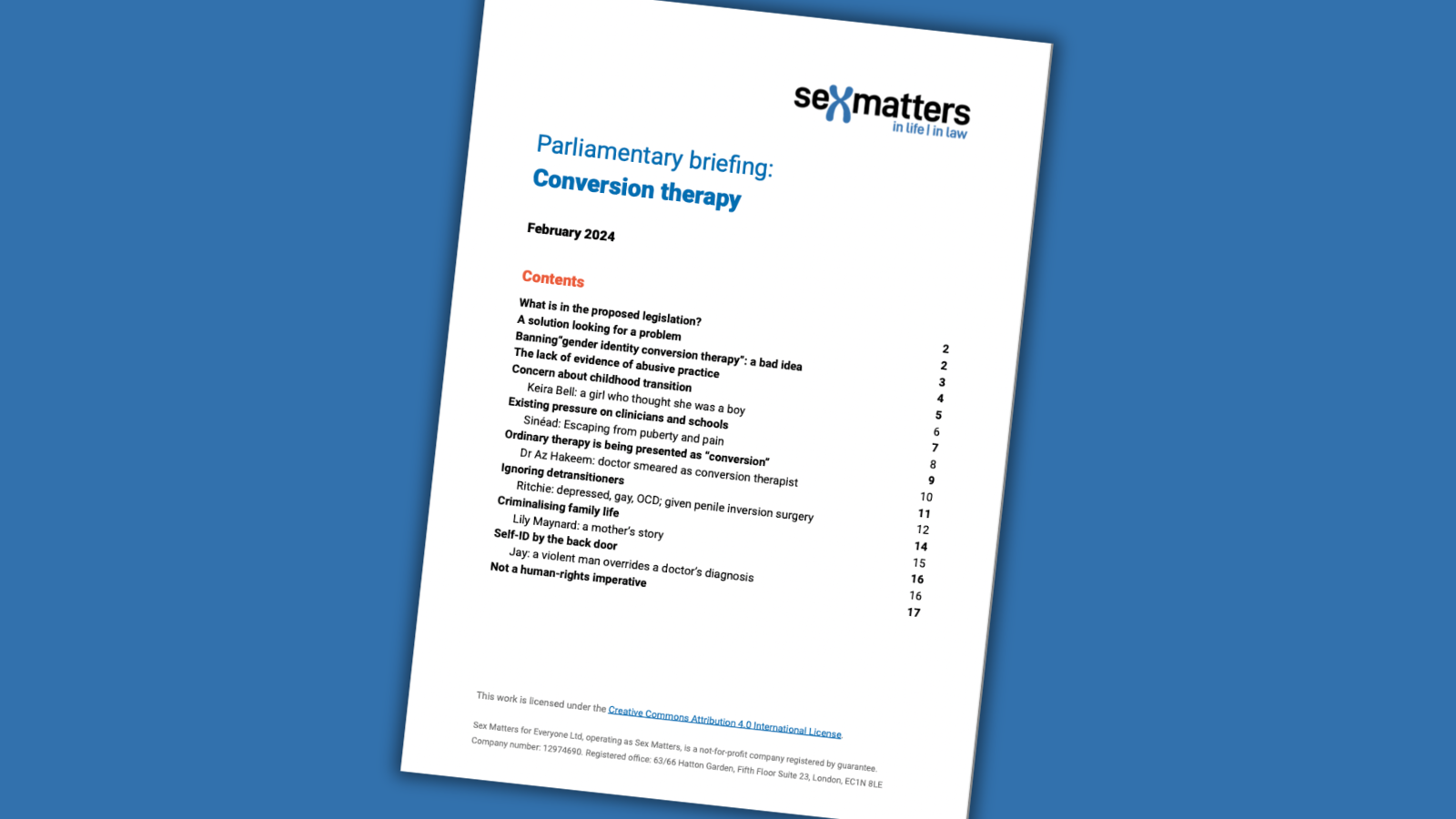
Parliamentary briefing: conversion therapy
A detailed briefing on the issues. See also our short briefings on conversion therapy and the Cooper report and understanding the Galop survey.
-
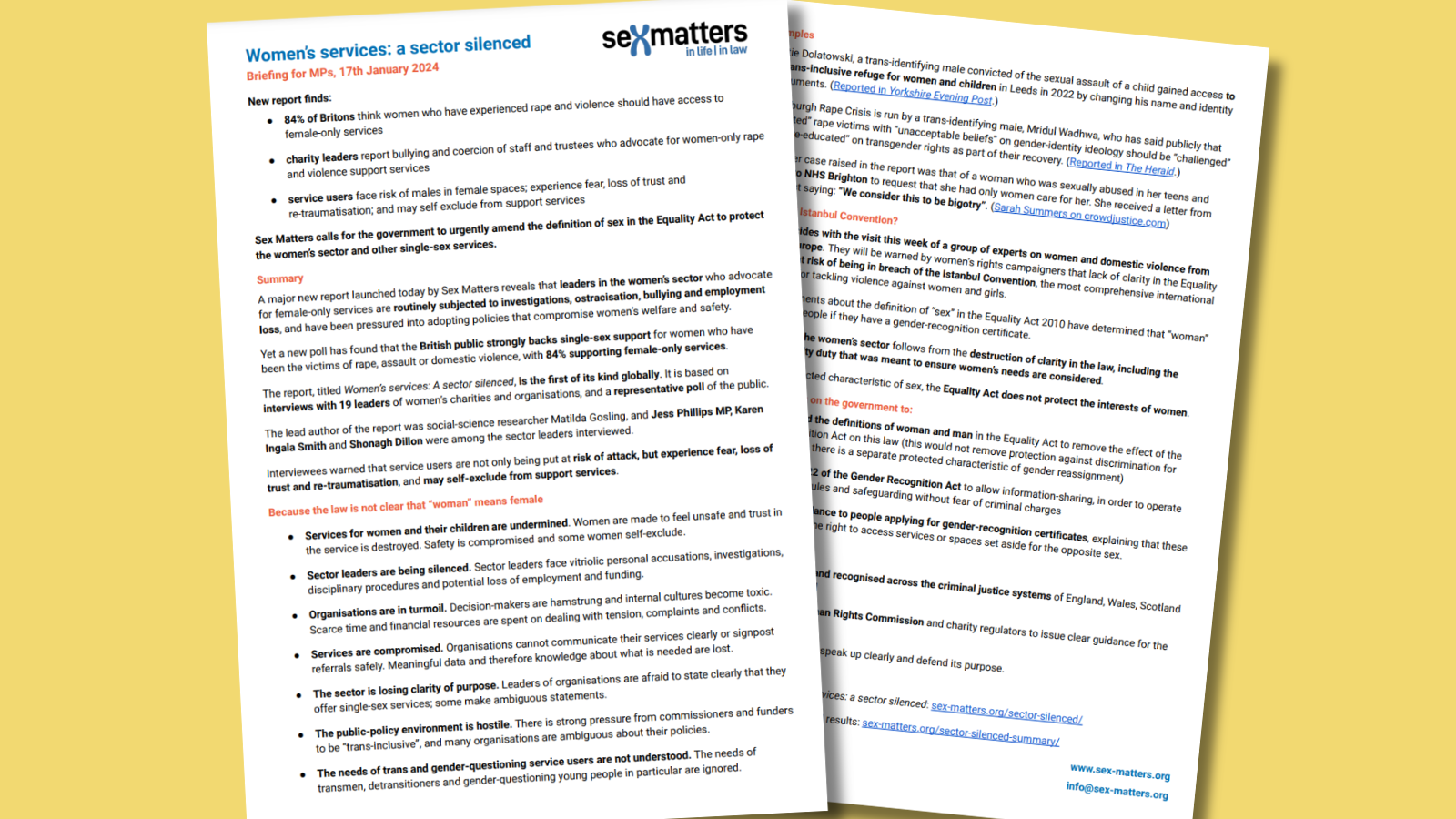
Briefing on report Women’s services: a sector silenced
For the Westminster meeting on 17th January 2024, a briefing on our report on the effects of gender-identity beliefs on the women's sector.
Read the report.
Read the summary. -
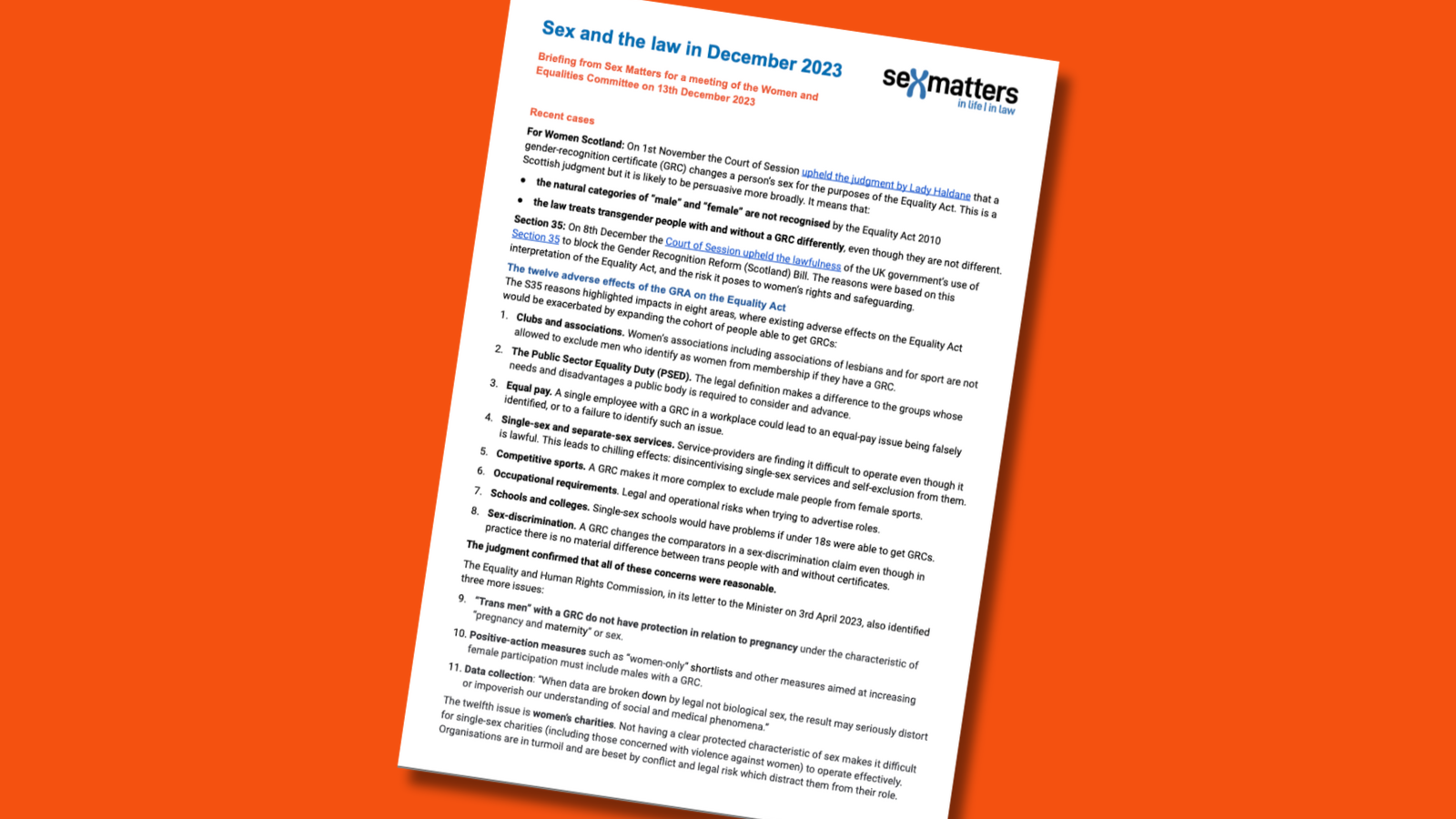
Sex and the law in December 2023 – a briefing
Briefing from Sex Matters for a meeting of the Women and Equalities Committee on 13th December 2023
-
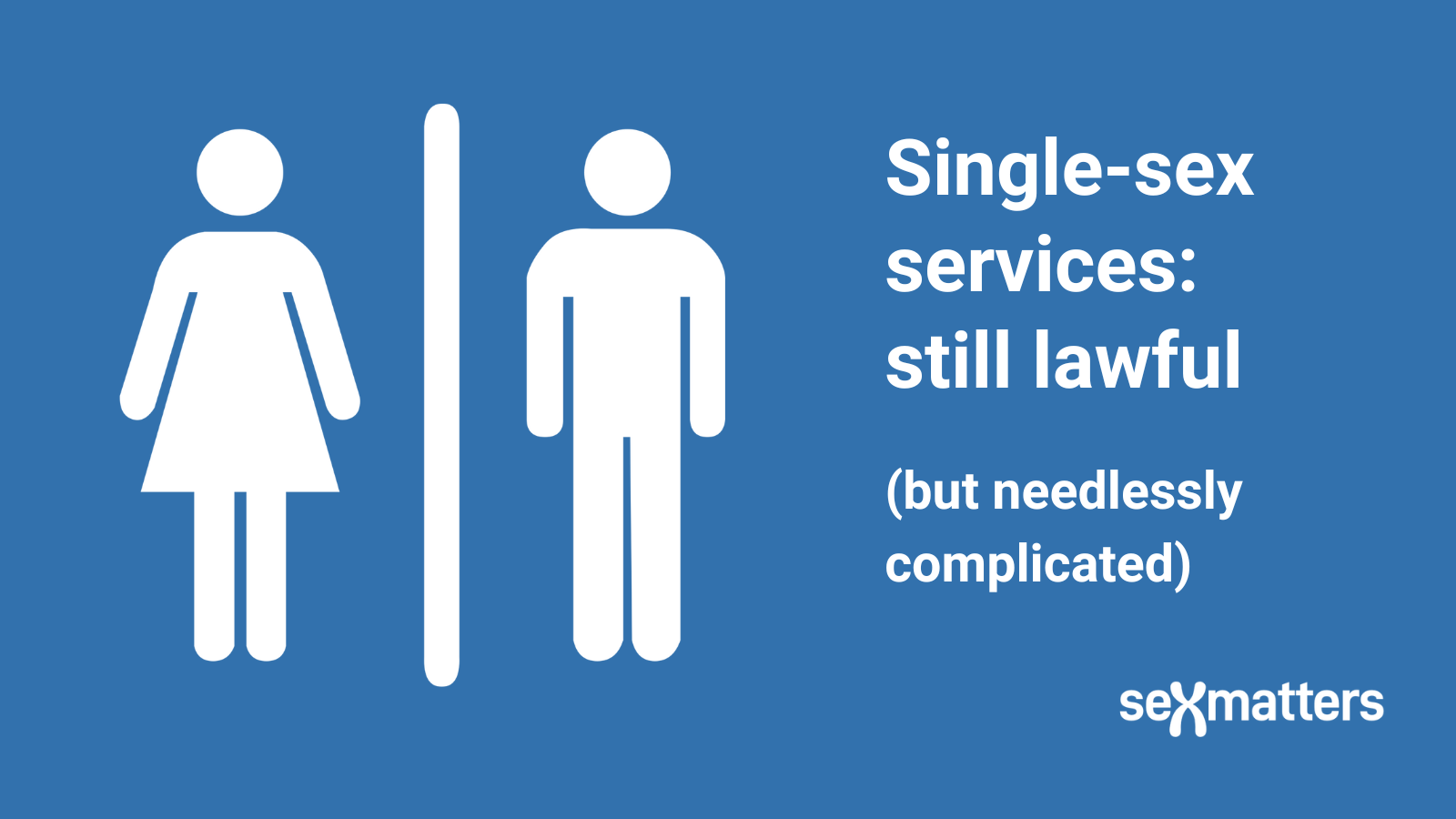
Guidance for service providers on single-sex services
In the light of the For Women Scotland judgment.
-
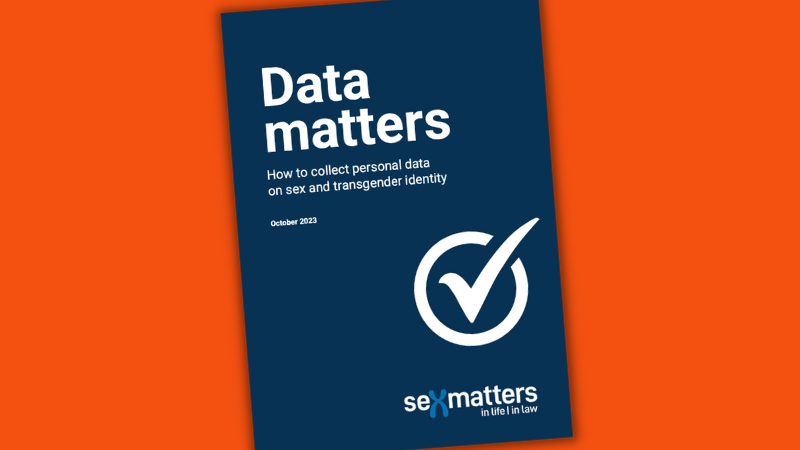
Data matters
Advice on the questions you should ask when collecting personal data on sex and transgender identity. See also our template letter of complaint to send when you are concerned that an organisation is misusing your data by confusing sex and gender.
-
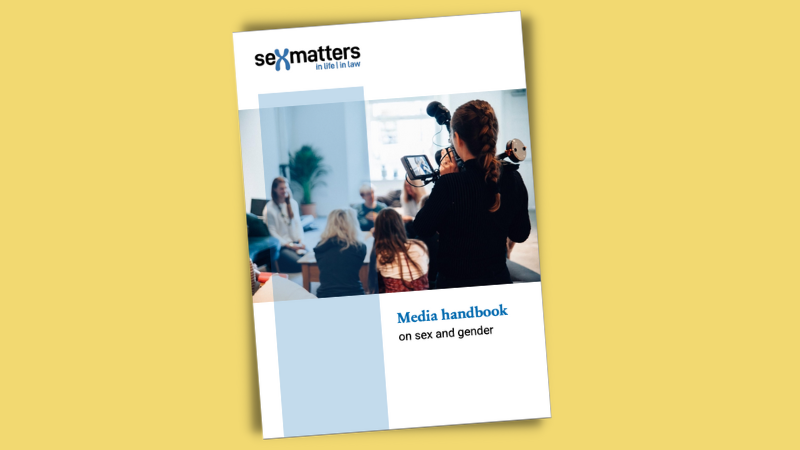
Media handbook on sex and gender
This handbook explains when and why it is right for journalists and editors to talk about people’s sex, and the problems that result if they fail to do so. It prioritises truth, accuracy and maintaining public trust, and within those constraints, minimising possible offence. August 2023: We have updated...
-

Support, advice and guidance for parents
Starting points for parents looking for support, advice and information (mainly focused on the UK) on how to help gender-questioning, gender-distressed and trans-identifying children.
12th July 2023
-

Make the Equality Act clear: resources for MPs
Links to the Westminster Hall debate on 12th June 2023, a single-sheet briefing for MPs, and other resources summarising the issues and answering frequently asked questions.
12th June 2023
-
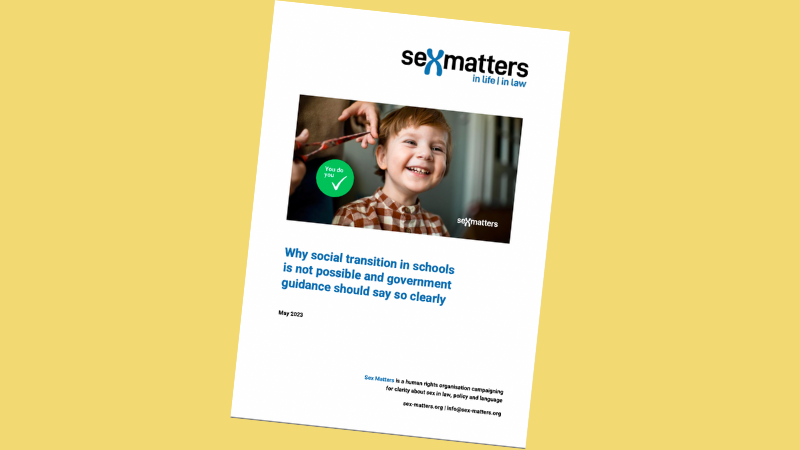
Why social transition in schools is not possible and government guidance should say so clearly
It is not possible to treat any child as if they are a member of the opposite sex in a school environment. A clear analysis of the steps involved in social transition reveals that to do so inevitably exposes the child to unacceptable safeguarding risks and infringes other pupils’...
-
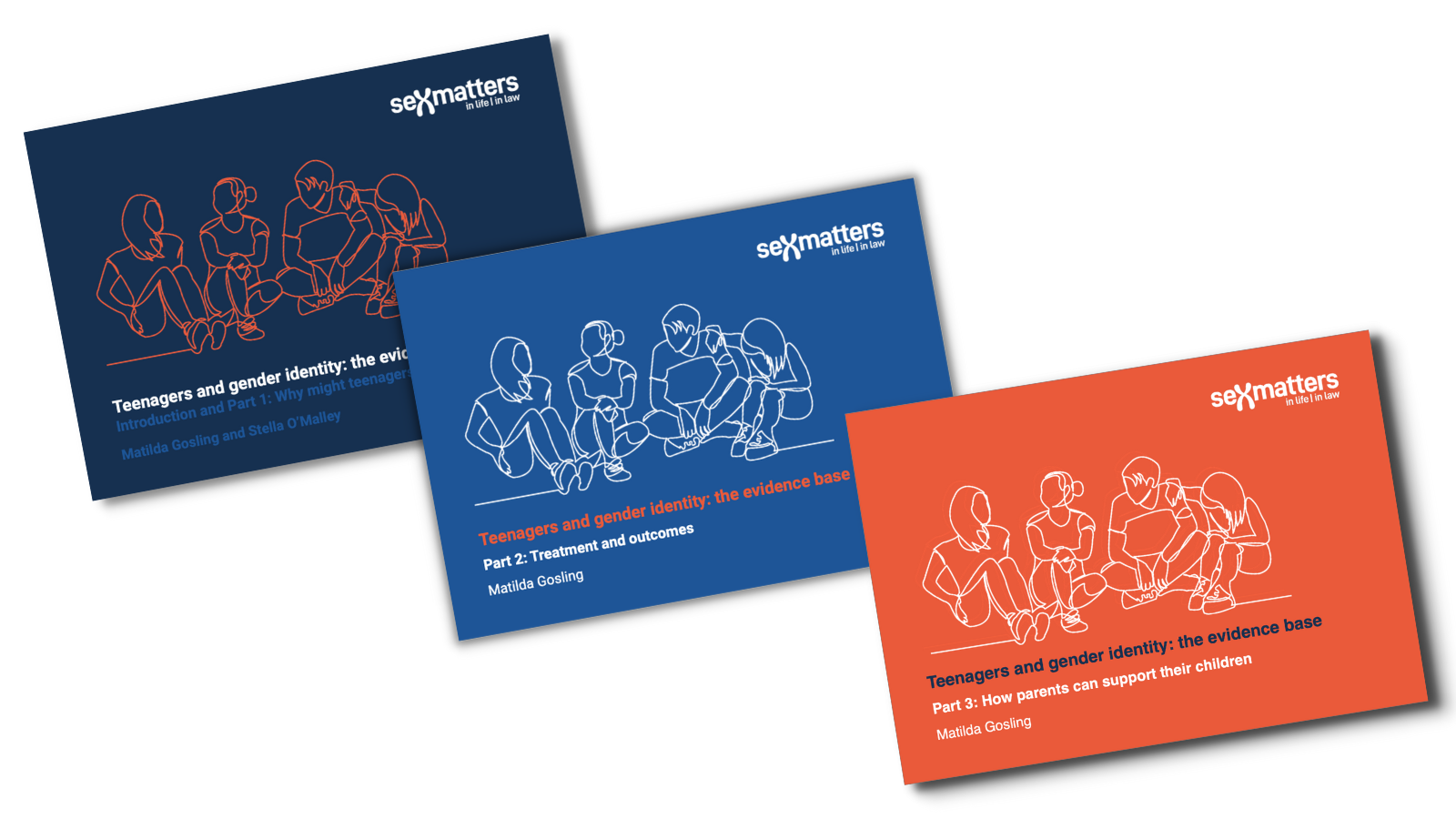
Teenagers and gender identity: the evidence base (parts 1, 2 and 3)
Part 1: Why might teenagers question their gender?
Part 2: Treatment and outcomes
Part 3: How parents can support their children17th April 2023
-
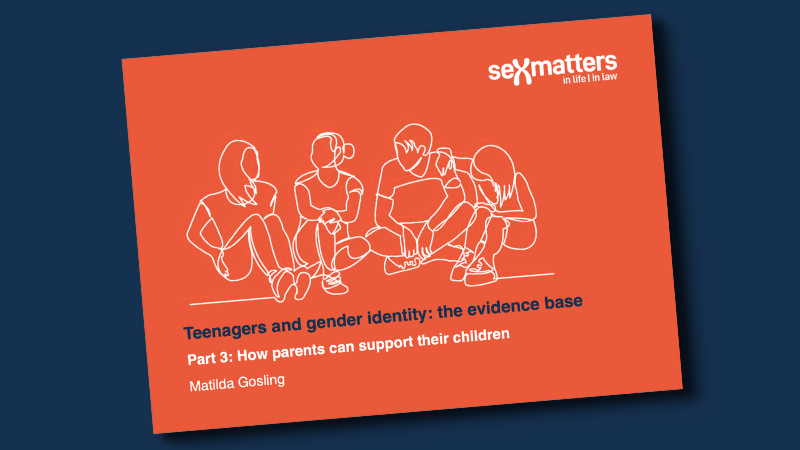
Teenagers and gender identity: the evidence base – part 3
by Matilda Gosling Part 3: How parents can support their children This paper is the final part of a series summarising the evidence base on teenagers and gender identity for parents. This part of the paper looks at practical ways in which parents of gender-questioning teenagers may be able to...
-
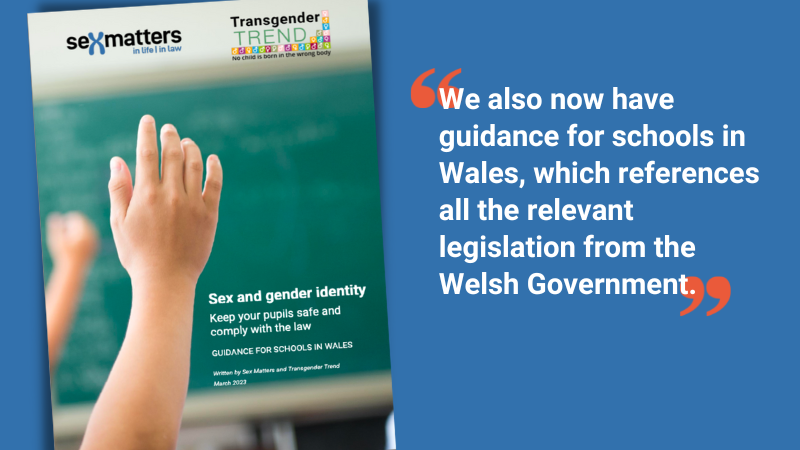
Sex and gender identity: keep your pupils safe and comply with the law – guidance for schools in Wales
Our schools guidance, produced together with Transgender Trend, has been revised for schools in Wales. It draws on guidance from the Welsh Government, relevant legislation from the UK government, the interim report of the Cass Review, EHRC guidance, and others. The model policy is now available...
-
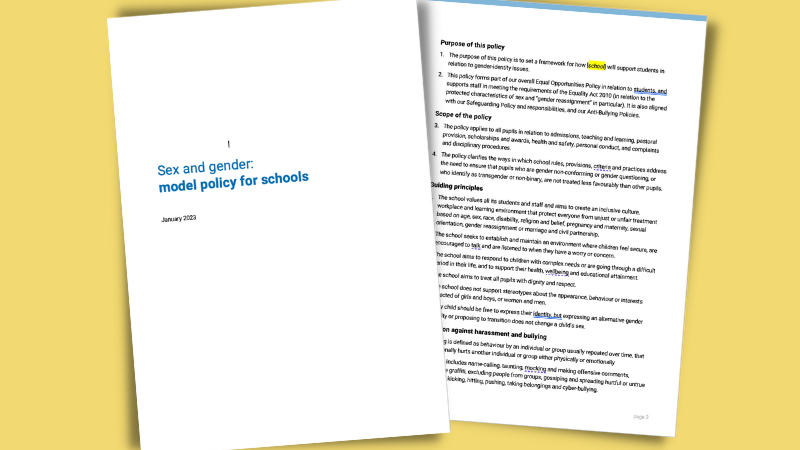
Sex and gender: model policy for schools
First published as part of our guidance for schools, this model policy is now in an unbranded Word document to make it easier to adapt for your school.
-
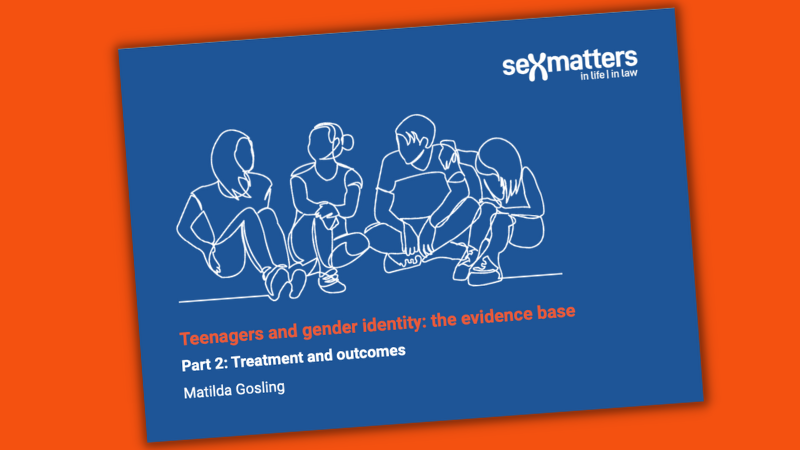
Teenagers and gender identity: the evidence base – part 2
by Matilda Gosling Part 2: Treatment and outcomes This paper is the second of a three-part series summarising the evidence base on teenagers and gender identity for parents. This part examines medical treatment for gender distress in teenagers – namely puberty blockers and hormone treatment – and associated mental and...
-
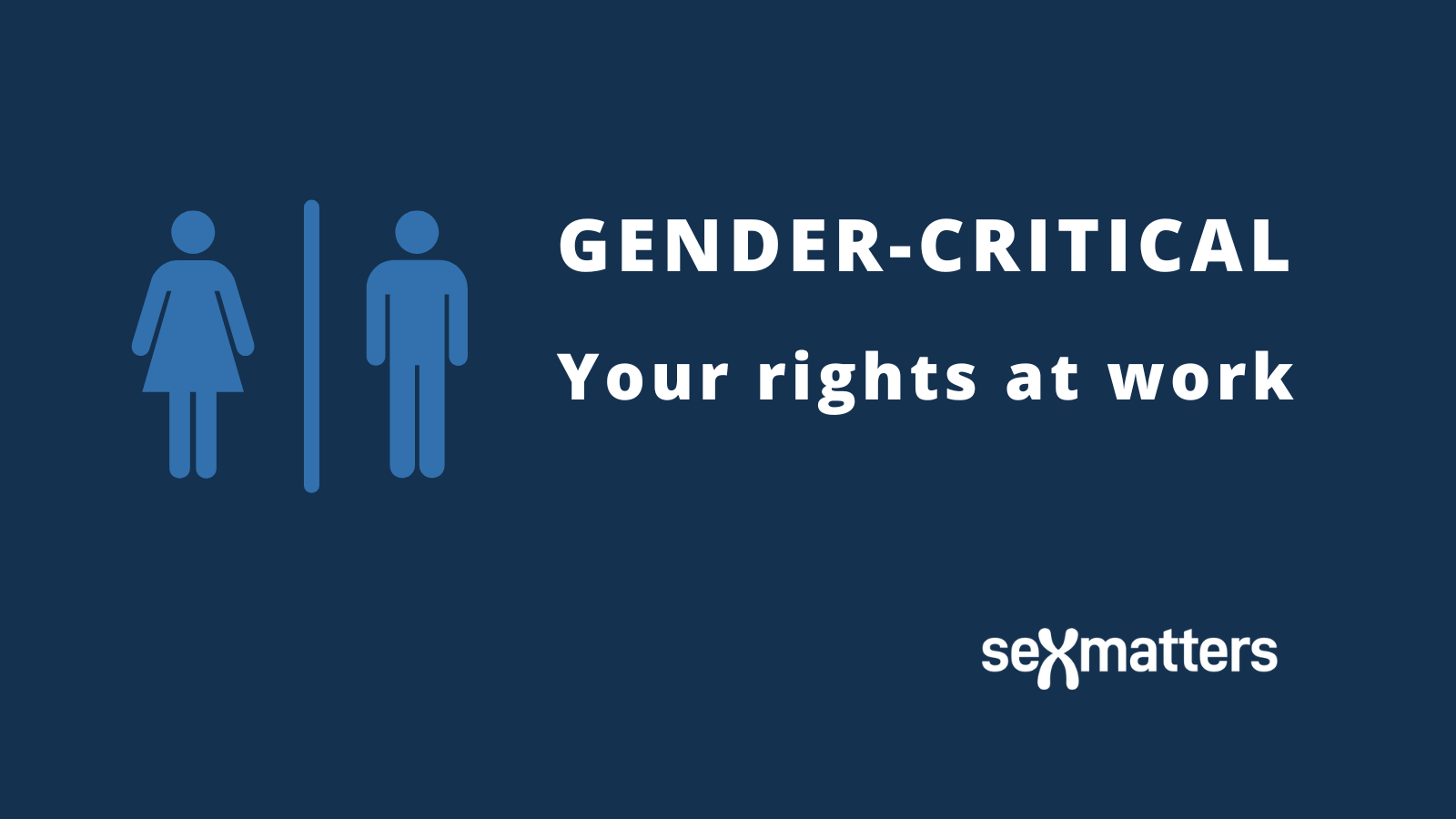
Your rights at work
The Equality Act 2010 protects people in England, Scotland and Wales from being discriminated against at work because they have gender-critical beliefs.
10th November 2022
-
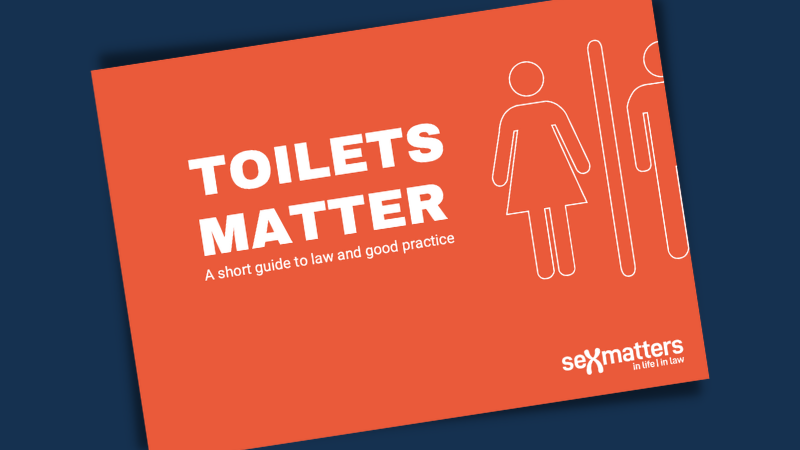
Toilets matter – a short guide to law and good practice
For any organisation that provides toilets for customers, visitors, staff or students – this guide will help you think through your choices, identify risks of discrimination and harassment, and provide clarity to users.
-
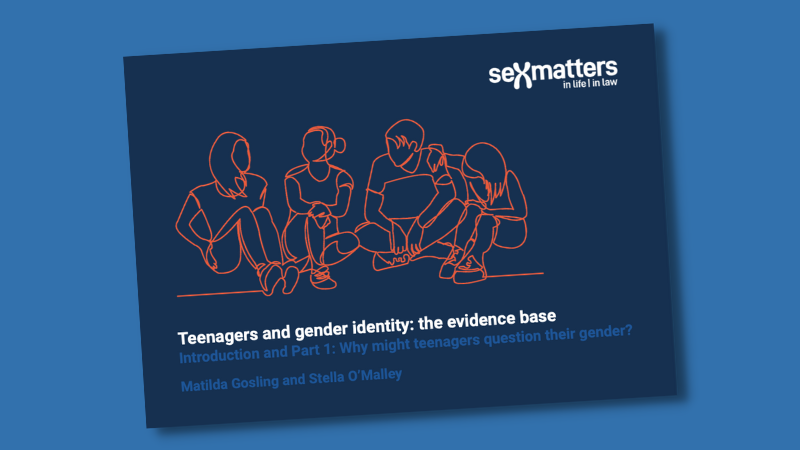
Teenagers and gender identity: the evidence base – part 1
by Matilda Gosling and Stella O’Malley Introduction and Part 1: Why might teenagers question their gender? A paper aimed at parents and those who simply want to understand more about gender identity in adolescence. This paper is the first of a three-part series summarising the evidence base on teenagers and...
-
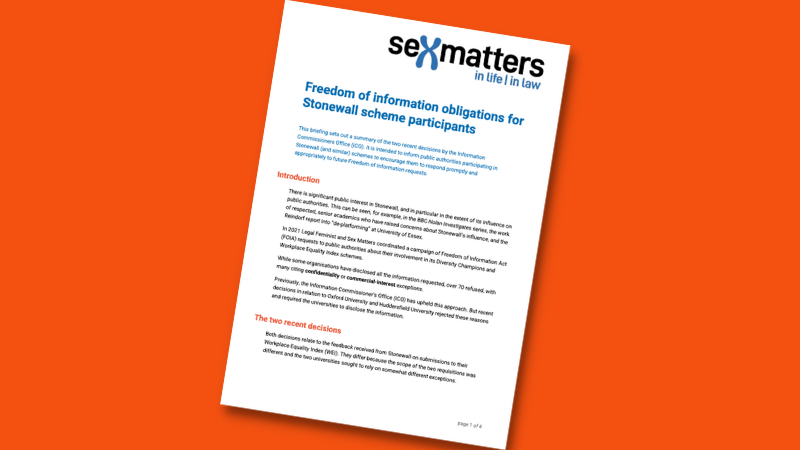
Freedom of information obligations for Stonewall scheme participants
A briefing to inform public authorities participating in Stonewall (and similar) schemes in order to encourage them to respond promptly and appropriately to future Freedom of Information requests.
-
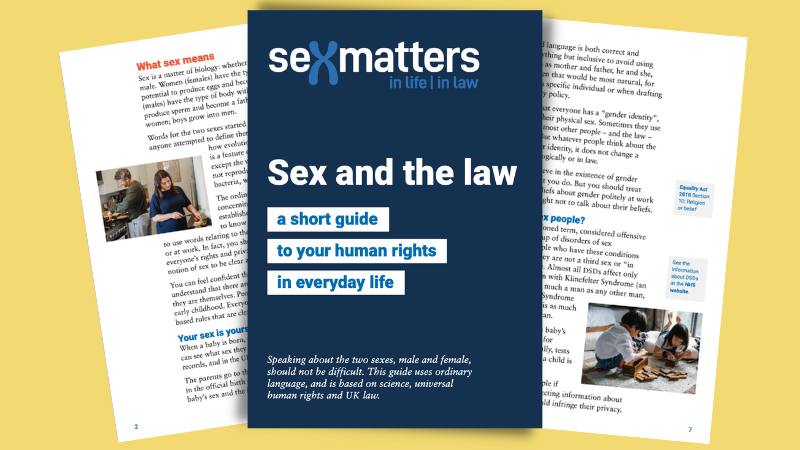
Sex and the law
A short guide to your human rights in everyday life.
Speaking about the two sexes, male and female, should not be difficult. This guide uses ordinary language, and is based on science, universal human rights and UK law -
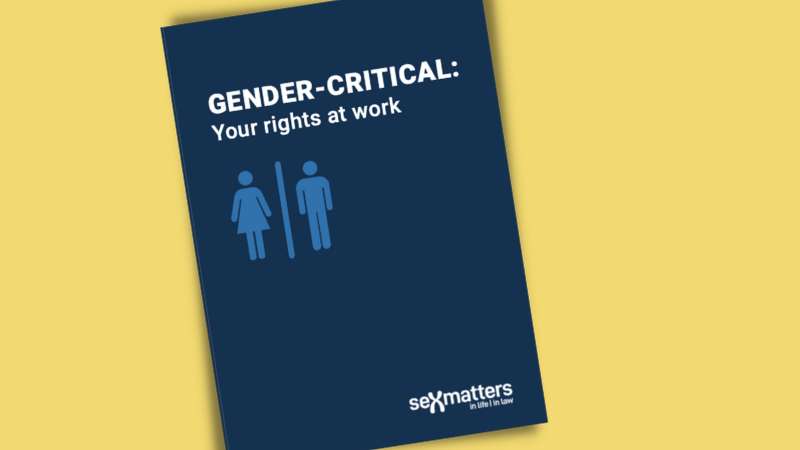
Gender-critical: your rights at work
A leaflet to print at home. Or a glossier version for colour printing or sharing online.
-
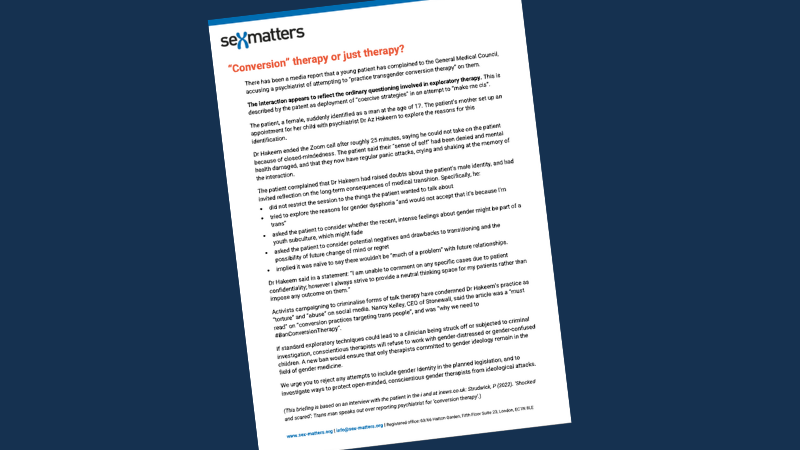
Briefing: “Conversion” therapy or just therapy?
There has been a media report that a young patient has complained to the General Medical Council about Dr Az Hakeem, accusing him of “conversion therapy”. This is Sex Matters’ brief analysis.
-
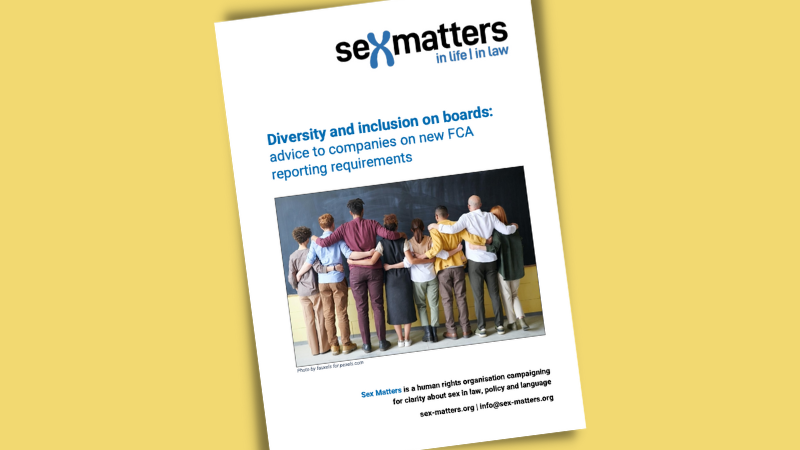
Diversity and inclusion on boards: advice to companies on new FCA reporting requirements
The Financial Conduct Authority has left it up to companies to determine how they define “men” and “women” in their diversity reporting. This briefing aims to assist boards in complying with the new regulations. We recommend the simplest, clearest, most neutral and most coherent approach: reporting based on sex.
-
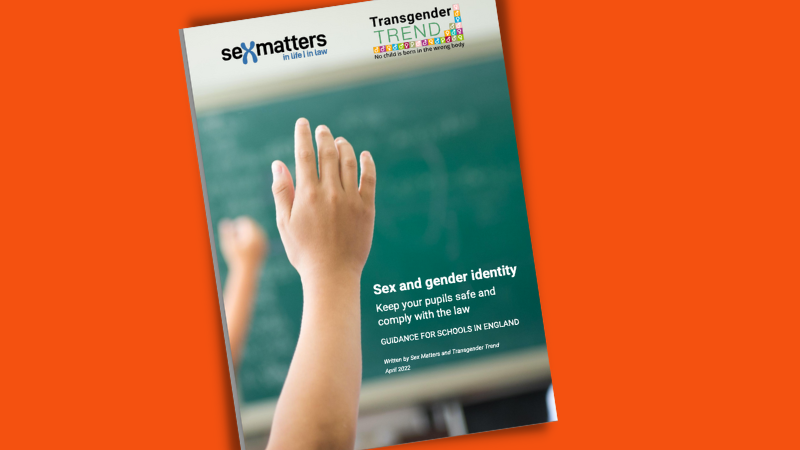
Sex and gender identity: keep your pupils safe and comply with the law – guidance for schools in England
This revision of our May 2021 guidance, produced together with Transgender Trend, draws on the interim report of the Cass Review, recent legal cases on freedom of belief, the EHRC’s new guidance on single-sex services and a YouGov survey of teachers, as well as government guidance and legislation. Republished with...
-
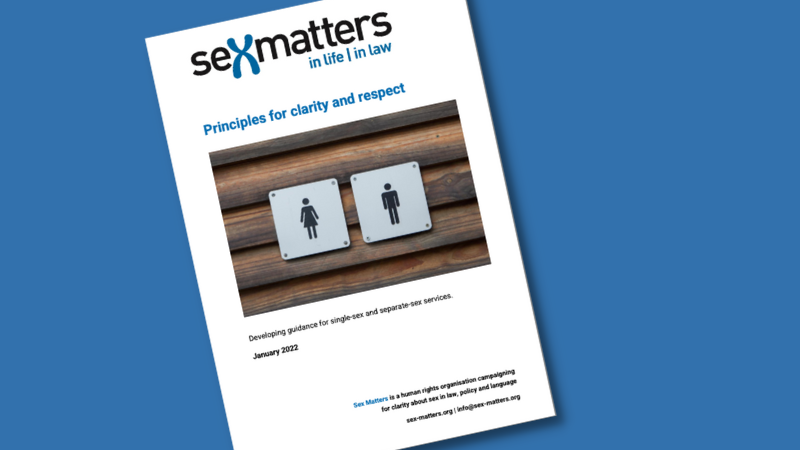
Principles for clarity and respect in developing guidance for single-sex and separate-sex services
The Equality and Human Rights Commission is planning to release new guidance on single-sex services. We set out three questions and ten principles that it should base its guidance on – and explain why what’s needed are clear, simple rules in everyday language.

